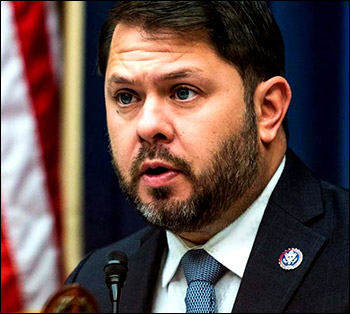By Jim Ellis — April 26, 2023
Senate
Arizona: Rep. Gallego (D) Leads in New Three-Way Polling — Rep. Ruben Gallego’s (D-Phoenix) US Senate campaign released its internal Public Policy Polling survey that gives the congressman healthy leads over all of the potential Republican opponents as well as incumbent Sen. Kyrsten Sinema (I). The PPP poll (April 18-19; 559 Arizona voters) finds that former gubernatorial nominee Kari Lake performs best of the potential Republican nominees, trailing 42-35-14 percent with Sen. Sinema in third place. The poll also finds the incumbent plagued with a poor 27:50 percent favorability index.These results are much different than the recent OH Predictive Insights poll that perched Gallego in the low 30s and Sen. Sinema hovering around the 20 percent mark with a favorability rating much closer to even. Expect to see many polls being released throughout this unique Senate campaign.
Montana: Top Two Primary Idea Appears Dead — The state measure to use the 2024 US Senate race as a test case for a top two all-party jungle primary system appears to be dead. GOP state legislators appear not to have the stomach to move forward with the test, even though the state Senate had originally passed the legislation.
Republicans were apparently trying to eliminate the probability of the Libertarian candidate attracting in the three percent range, which is common in Montana. The belief is most of those votes would go to a Republican candidate. Therefore, eliminating minor party candidates from the general election ballot would at least theoretically make Sen. Jon Tester’s (D) road to re-election much more difficult.
House
IL-12: Ex-GOP Gubernatorial Nominee to Challenge Rep. Mike Bost (R) — Former Illinois state senator and 2022 Republican gubernatorial nominee Darren Bailey (losing 55-42 percent to Gov. J.B. Pritzker, D) is reportedly testing the political waters for a primary challenge to five-term Rep. Mike Bost (R-Murphysboro/Carbondale).
The 12th District is one of just three Republican seats in the state and occupies all of southern Illinois. It appears a Bailey victory path is difficult to chart, since Rep. Bost is solidly conservative and unlikely to upset the party base. Should Bailey move forward, this will be another race to watch in Illinois’ March 19, 2024, primary.
Governor
California: Lieutenant Governor Already Announces — California Lt. Gov. Eleni Kounalakis (D) is wasting no time in making her intention known that she will run for governor in 2026. She announced Monday the formation of her campaign committee even though the electoral contest is still three years away from occurring. Gov. Gavin Newsom (D) will be ineligible to seek a third term at that time. It had become common knowledge that Kounalakis would not enter the open 2024 US Senate race because she was planning a ’26 gubernatorial bid.
New Hampshire: Ex-Senate Candidate Eyes Governor Race — Former state Senate President Chuck Morse (R), who lost the 2022 Republican US Senate primary by one percentage point, confirms that he has interest in running for governor next year if incumbent Chris Sununu (R) decides not to seek a fifth term.
Though New Hampshire has just two-year gubernatorial terms, only Gov. Sununu and former Gov. John Lynch (D) have served four consecutive terms. Most believe that Gov. Sununu will not run a fifth time since he is a potential presidential candidate. It is possible, however, for him to enter the national campaign and still have time to again run for governor should he not succeed in his presidential effort. New Hampshire has one of the latest candidate filing deadlines and primary elections in the country.
Former US Sen. Kelly Ayotte (R) is also frequently mentioned as a potential open-seat gubernatorial contender. Outgoing Manchester Mayor Joyce Craig attracts the most attention as a possible Democratic gubernatorial candidate.





